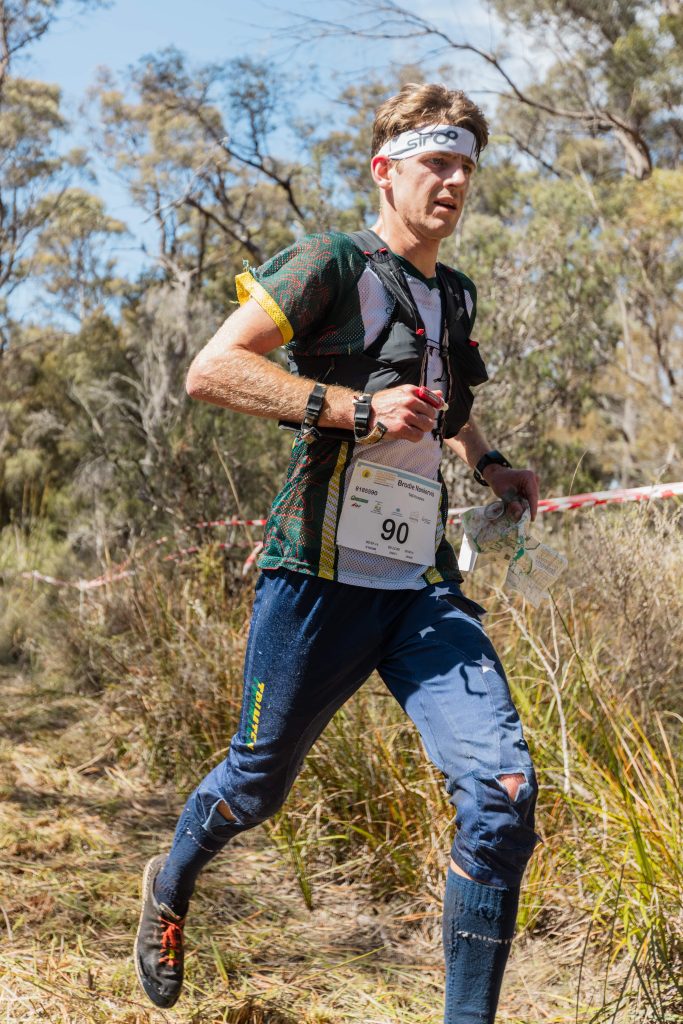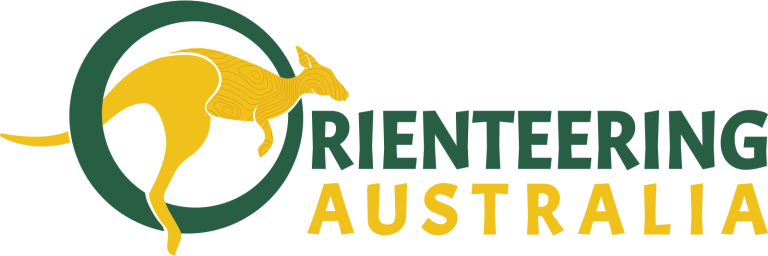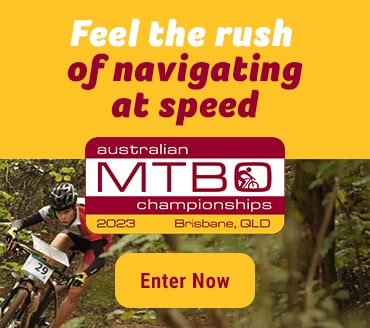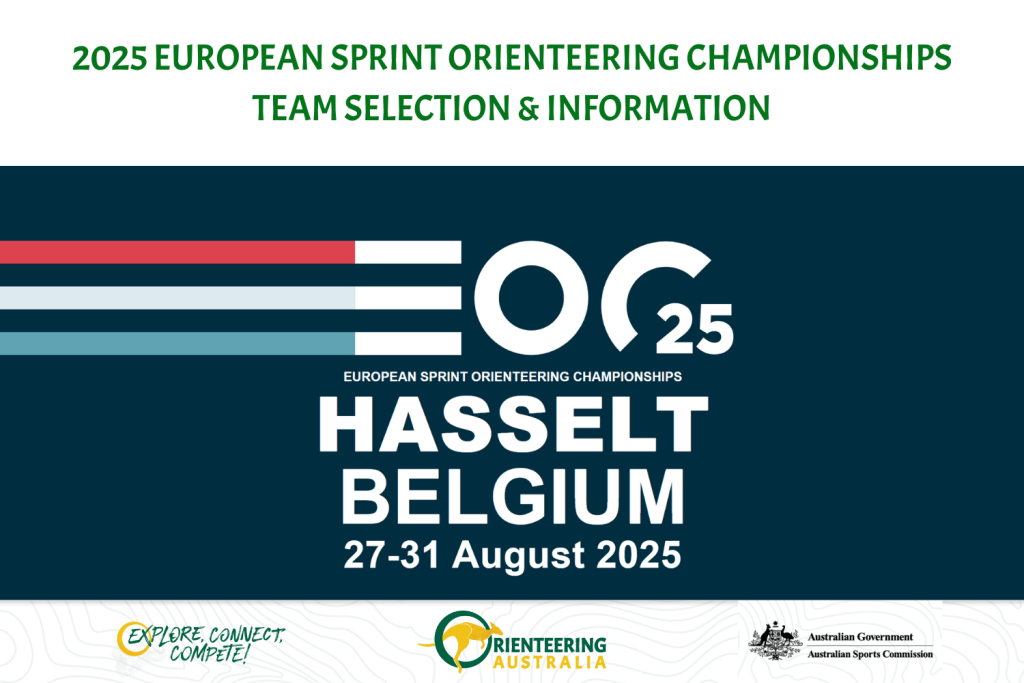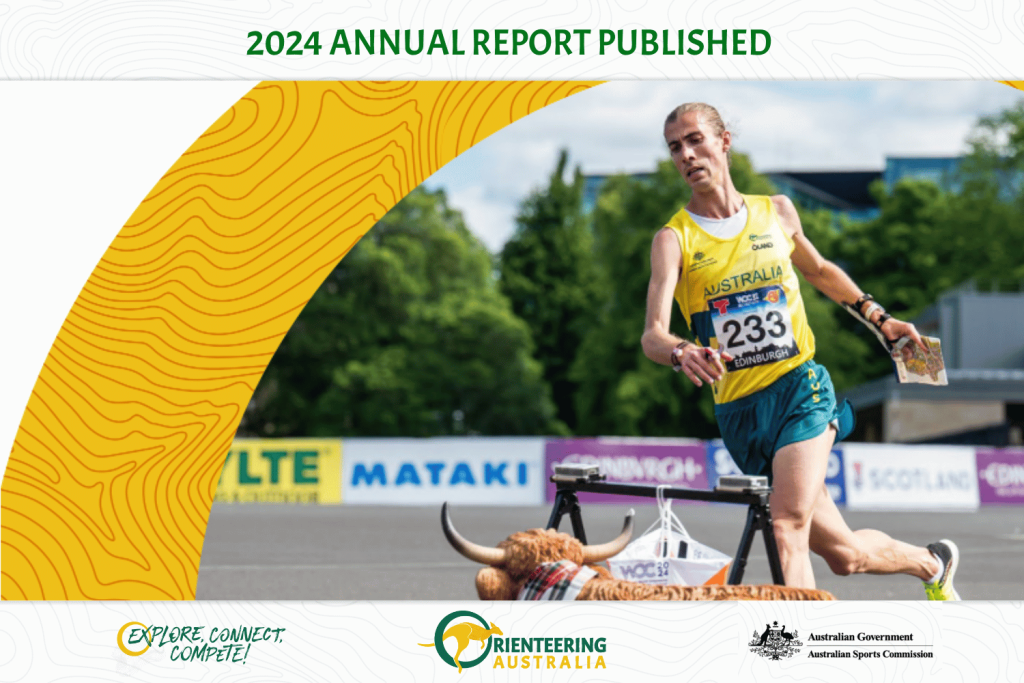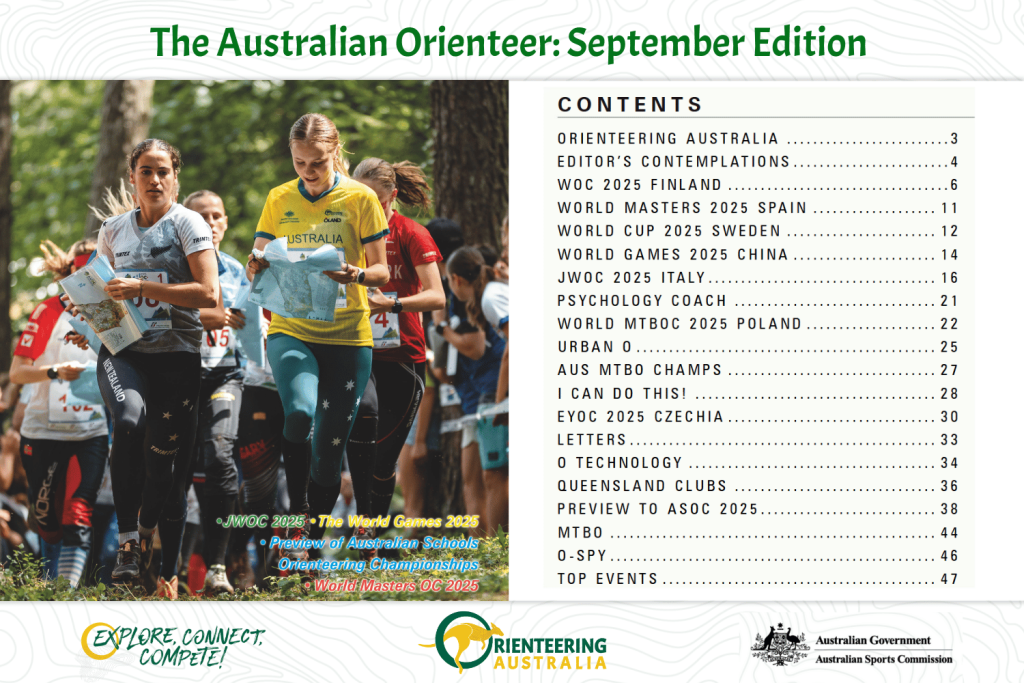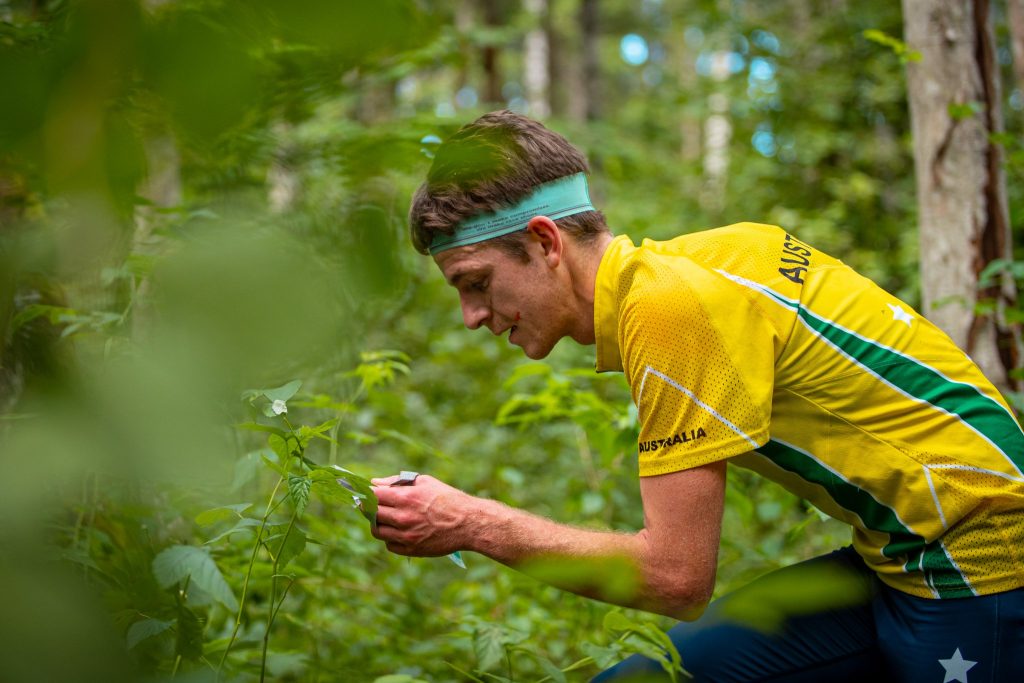
To kick of the new year, this month we are starting with a slightly different interview. I’m Natasha Key, current Orienteering Australia Head Coach and I am interviewing your normal host, Brodie Nankervis. Brodie has a long history of orienteering, first representing Australia at JWOC in 2012. Since then he has run for Australian on many occasions, most recently at the World Orienteering Championships in Switzerland in 2023. Some of his best performances include three top 20s at JWOC 2014, 34th in in the 2023 WOC long distance and 1st in both the Sprint and Long distance at Oceania Champs in 2019. He is also an accomplished trail runner, running for Australia at the World Sky Running Championships in 2022 and several domestic race wins. Brodie has also contributed to OA in several roles, including JWOC coach in 2018 and 2019, and is the current manager of participation and coaching development.
It’s been a little while since our last athlete interview, but we have an awesome interview coming up later this month with all-time great Rob Walter, so keep an eye out for that. For now, let’s return to January where Natasha Key, OA Head Coach, took over the interviewing role and spoke to our normal host, Brodie Nankervis, about his experience with orienteering over the past 15 years!
Thanks for stepping into my shoes and running the interview Tash!
Thanks for joining us, Brodie. I’ve got some questions for you. I know you will have some good answers.
Firstly, I’d like to know how you think your training has evolved over the years? We know that you first represented Australia JWOC in 2012 and then most recently at WOC 2023 last year. How’s your training evolved over all those years?
That’s a good question. Well, I guess it’s been a bit of a journey. I have been a runner my whole life, doing little athletics and some cross country running when I was young. So, I’ve always been running and then I guess in the lead up to 2012 when I first went to JWOC, I’d first started what I would call training. I started running regularly and following a program. JWOC was a catalyst to start training seriously, and I would say in my last year of JWOC, I was very focused on my physical training to sort of get as fit as possible and that did lead to some good results.
Since then, it has evolved slowly, over time, nothing drastic, but I’ve just taken on different things from different coaches that I’ve had and different mentors that I’ve had and athletes that I’ve been in teams with, where I’ve taken advice from them and integrated that into my program. I am currently taking my running the most seriously. I’m working part time most weeks and focusing more time on my training. Some of the main things I’m doing differently in the last couple of years is really focusing on my fuelling and eating properly around my training, getting into the gym regularly and lifting heavy weights both for performance and injury prevention, and getting out into the hills as much as possible. That’s probably the biggest change in my running over the past 5 years. Mostly influenced by the races I’ve been doing in trail running, but also well, Switzerland was super hilly, so it was really beneficial to get out into the hills for that.
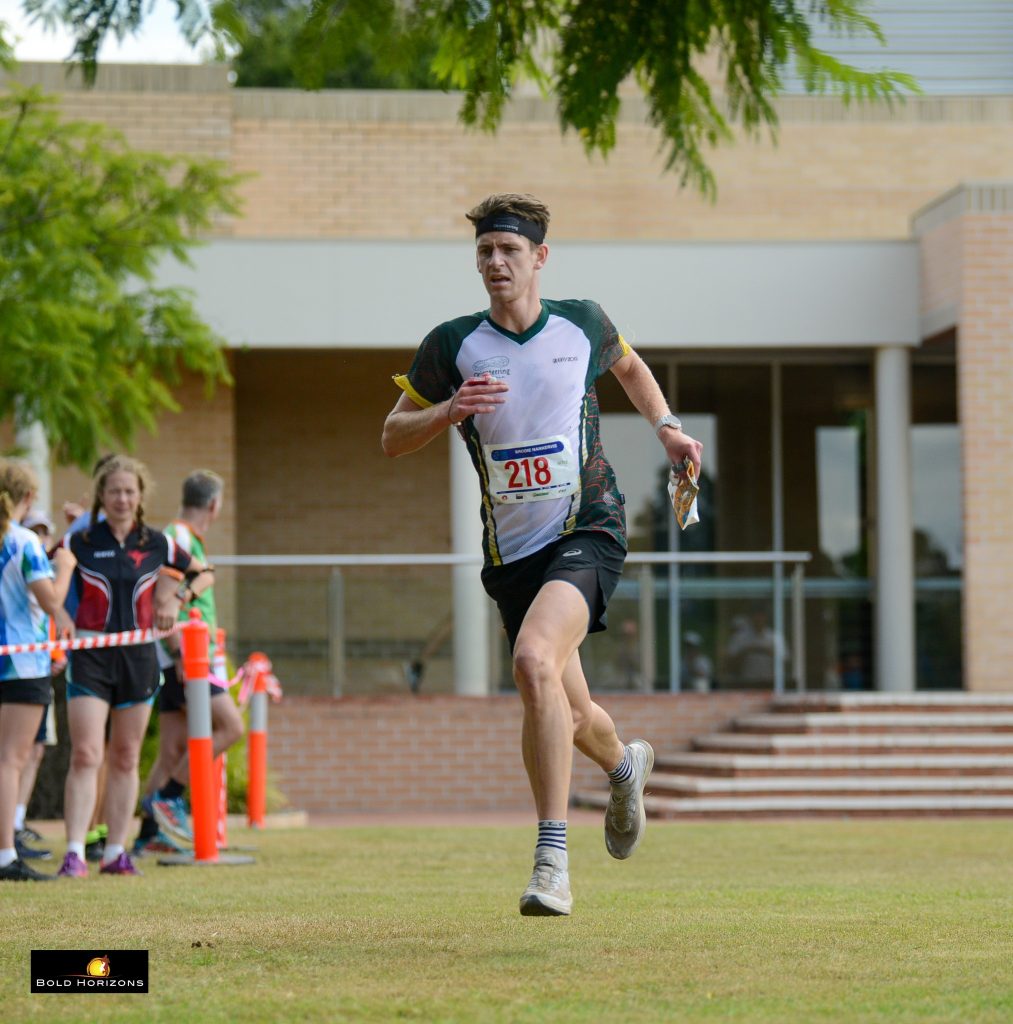
It certainly sounds like you’ve had a strong running background this whole time and I’ve seen just personally that you’ve ramped it up in the last few years and that has led to having some fantastic results in especially the last two years, in particular the 2022 World Cup long distance and then the WOC 2023 the long distance. Do you prefer long distance?
I think so. Mostly because I guess at this point in my career, I love all types of orienteering, but my preferred or my focus is on the on the discipline that I’ve figured out is my best. It’s probably my preferred distance to race at, but maybe not the one I enjoy the most. I think I still enjoy sprint and middle distance just as much, if not more, because I’m maybe less serious about it to some extent. I’m looking forward to doing some more Sprint this year.
Ok Brodie, I think we’d all like to know how you manage to juggle all your work and life commitments with your training. I know you have numerous hats on working for orienteering Australia, and you are also a successful physiotherapist. Plus, you’re training as an elite orienteer and also an elite trail runner. How do you manage all of that?
It’s tricky but I think over the years I’ve had to practise juggling various things. I have always been balancing training with university or working and trying to maintain some sort of social life! It does take a bit of time, but I think what works for me is trying to get a bit of balance in in all of those areas, not throwing all my eggs in one basket. Because I think that could become easily overwhelming if I went all in on running and did nothing else, then I would probably struggle to not have an outlet somewhere. And on the flip side, doing too much work or study probably wouldn’t help my training too much. I’m lucky I’ve got to the point where I can have a nice balance and I can work a little bit less. It’s all about prioritising what’s most important to me and my family and my friends, fitting all the pieces together. Currently my main focus is my running and my orienteering. I know that I’m not going to be running at a high level forever, so over the past couple of years I’ve sort of flipped a little bit back from focusing more on work, to now focusing more on running, working enough that I can financially sustain myself.
Nice one. OK, I’d like to ask about your strengths and weaknesses and your perception of what these are? And then what, if anything, you do to address them?
I think my main strength is my endurance capacity, like how long I can run for or how long I can go at a sub maximal effort. On the flip side, one of my weaknesses is my top speed. I think the pace that I would run for a half marathon is not too much slower than what I would do over a 5 and 10km. The things I’m doing to work on my speed is probably trying some new things that I’ve not done before. I’m working a little bit more on power in the gym and trying to implement it into my running as well. More short efforts, doing sprint orienteering and doing running sessions that are similar to what we need to do in sprint orienteering.
The other main weakness I’ve realised recently is being able to identify the mental state of mind where I perform best. Whilst racing trail running, I’ve been able to recognise when I am successful and focusing on what mental state I was in when I had success. I think in orienteering it’s very easy to get distracted by the technical skill of orienteering. We say, “I made a mistake there” and analyse what technical error was made. But I’ve never been very good at delving into what mental state was I in at that point. Was I stressed or was I calm? Was I building into the race or was I anxious to get going? In trail races I’ve found that if I go out conservatively and build through, I have a really good performance and I think I’ve started to look at orienteering races and a similar thing is probably very beneficial for me. I often go out too hard in orienteering and blow up the first control.
So, the trail racing has given you good mental preparation and race skills? Knowing your own ability and how much you can push yourself or not. Because with orienteering, if you push yourself too much and you go over that line, then it’s easy to make mistakes.
Yeah, yeah.
Good to know that trail running has helped you know where your limits are. It also probably helps with your life balance and just giving you something else in your sport life apart from just focusing on orienteering.
Yeah, for me it ticks both those boxes. I think that is one top tip for of anyone out there, juniors or seniors. Getting involved with something else that’s not orienteering, and if it can be some sort of running, I think it’s really beneficial. I’ve previously thought of it as mostly physical in knowing what it feels like to push your body to the limit, because I think in orienteering it’s hard to push your body to the limit because you’ve got to focus on the navigation, but I think it’s the mental side as well. It can be trail running, it can be track running, it can be road running, it can be a different sport. I don’t think that’s super important.
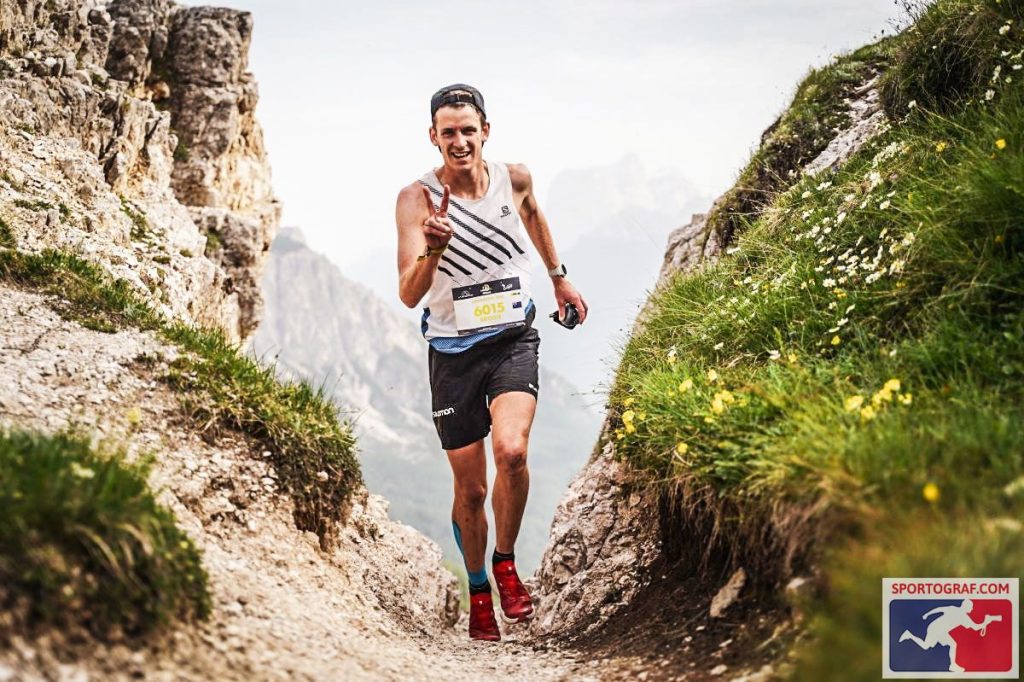
Yep, absolutely agree. I’ve always been a big, big advocate for getting out there and doing some other racing! It sounds like you’ve got a really good balance and you’ve got good time management which I know cause I know how much work you get done and you’ve got a clever planned training program. It’s looking like a really good 2024 season ahead, how are you feeling about it?
Yeah, I’m feeling pretty good. I think last year I hadn’t thought that I would do world champs this year and then I did a Sprint race at the five days of Italy, and I actually had a really good race. It wasn’t the strongest field, but there were some good runners and mostly I’m just looking at the race and how good I felt doing it. I thought maybe there’s a little bit left and I’m not too old yet! So yeah, I’m super excited about this year and seeing what I can do. I think at the moment it’s more difficult for me to make the sprint team than it is to make the forest team. So that’s a nice challenge. It’s going to be really hard for me to make the team and if I get in the team then I’m going to compete well at World champs. That is a really cool position for the team to be in this year, with those people that do end up on the team knowing that they are good enough to compete on the world stage.
OK, I’m just going to finish with a few quick, more fun questions. Favourite event you’ve been to?
I think actually my favourite ones I’ve ever raced have been sprints, which is funny being a long-distance specialist. It’s hard to go past Sprint the Bay in New Zealand in 2020.
Favourite country to go orienteering in?
Switzerland. I absolutely loved the last two years spent preparing for 2023 in Switzerland. It’s really cool terrain and quite varied as well. It can be really steep, can be really technical and the views are really cool.
OK, favourite terrain type?
My favourite is probably granite. In Australia, one of my favourite areas is Kangaroo Crossing. That sort of big granite with a little bit of low visibility. It’s really cool.
Favourite post-race nutrition?
Favourite would probably be chocolate milk, one that I have the most is probably a protein shake, just cause it’s easier and I’ve often got it on hand.
Favourite kit of another team?
I really like the Swiss kit. But in a bit of a rogue answer, I really like the Czech speed suits. They are something different, I loved that. I reckon we should get speed suits in Australia.
Ok, speed suit on order for Brodie haha. Do you have a funny rigid pre-race routine? You know, touch your nose, touch your ears, scratch your butt?
I think the one that’s persisted over the years is checking my SI stick three times or four times. I have this association that I have a good race when it’s either three or four. But it’s not always good because if I don’t get to punch the check more than once, then I’m getting stressed that I didn’t do it. Or I can’t remember how many times I have done it; I have to check multiple times usually…
I think I usually check at least two times! Well thanks for doing the interview and I wish you all the best for the season ahead. Where can people go to follow your progress?
You can follow me on either Strava or on Instagram @brodie_nank (or for some questionable travel content @timepressedtraveller :p). I also do some private coaching and there is some more info through my coaching page @ascend_physio_coaching.
